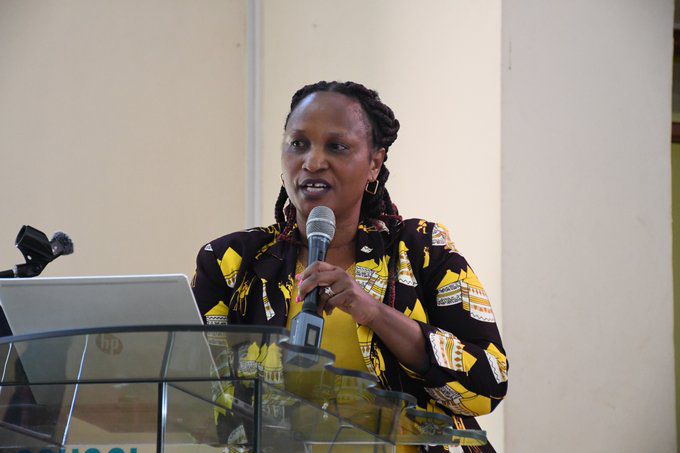
by Mersia Aloo
Nairobi, Kenya – October 8, 2024 – In a significant moment for inclusivity in Kenyan politics, the Office of the Registrar of Political Parties (ORPP) launched the Political Parties Persons with Disabilities (PWDs) Training Manual at the Tin-Tin Hall, Kenyatta International Convention Centre. The event, attended by prominent stakeholders, advocates, and government officials, marks a pivotal step towards enhancing the political representation and participation of persons with disabilities in the country’s democratic processes.
Dr. Ann N. Nderitu, the Registrar of Political Parties, emphasized that the launch signifies a collective commitment to ensure the voices of PWDs are not only heard but actively represented in the political landscape. With statistics indicating that only 0.83% of political party members in Kenya have disabilities, Dr. Nderitu underscored the pressing need for greater inclusion. “Participation of persons with disabilities in political and public life is a right provided by law. When PWDs engage, their voices are reflected in policy decisions,” she stated.
Hon. Sen. (Dr.) Isaac Mwaura, Government Spokesperson and a longstanding advocate for PWD rights, echoed this sentiment, affirming that political inclusion is both a moral imperative and a legal obligation. He referred to the Convention on the Rights of Persons with Disabilities, which guarantees equal rights and opportunities for PWDs globally. “We cannot hope to build a fair and democratic society if any group is left behind,” he remarked.
The newly launched manual is designed to bridge the gap between legislation and practical implementation, offering a comprehensive resource for political parties to create inclusive environments. It guides parties on actionable steps to enhance accessibility, including providing necessary resources such as sign language interpreters and accessible voting booths.
This manual is particularly crucial given the historical context of PWDs in Kenya, who have often been marginalized in the political sphere. The statistics reveal that fewer than 2% of registered voters in Kenya live with disabilities, and of those, only a small fraction successfully contested in the 2022 General Elections. Out of 270 candidates from the PWD community, only 21 were elected to office, with the overwhelming representation skewed towards male candidates.
Dr. Mwaura urged stakeholders to utilize the training manual as a living document that drives real change. “While today is a moment to celebrate, it also calls for action. The success of this manual depends on our commitment to integrating its recommendations into party structures and policies,” he stated.
Both leaders stressed the importance of collaboration among political parties, civil society, and government to ensure that PWDs can not only participate but thrive within the political arena. The ORPP’s initiatives, such as capacity building programs and the development of a Disability Inclusion Charter, aim to create a political culture where inclusivity is the norm, rather than the exception.
As the launch concluded, attendees were filled with hope and determination for a more inclusive political future in Kenya. The Political Parties PWD Training Manual serves as both an empowerment tool for PWDs and a roadmap for political parties aiming to represent the diverse fabric of the country’s electorate.
In the call for a united effort towards equality, the sentiments shared at the event resonate with a profound message: “Let us ensure that persons with disabilities have a seat at the table, where their voices are heard, their contributions valued, and their rights respected.” With this new manual, Kenya takes a courageous step toward a more inclusive democracy for all.

More Stories
Hon. James Wanjohi — Kabete’s Finest
MP Mary Maingi Sends Back-to-School Message to Learners
Xi meets Taoiseach of Ireland Micheal Martin